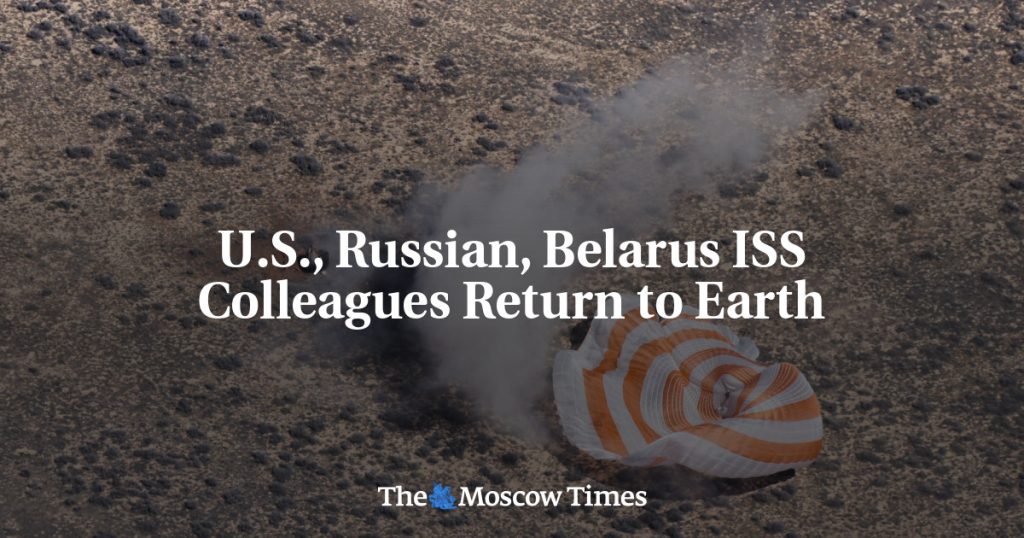An astronaut from NASA, a cosmonaut from Russia, and Belarus’s first-ever space traveler have safely returned to Earth after spending two weeks aboard the International Space Station, as reported by Russia’s Roscosmos agency. The descent vehicle of the Sozuz MS-24 manned spacecraft landed near the Kazakh city of Jezkazgan at 10:17 am Moscow time. The deorbit and descent to Earth went smoothly, according to Roscosmos. Oleg Novitsky and Marina Vassilevskaya spent 14 days in orbit, while American astronaut Loral O’Hara completed a 204-day mission, marking the first time in space for Vassilevskaya and O’Hara.
The crew’s safe return from their mission was congratulated by Belarus President Alexander Lukashenko. The spacecraft had taken off from the Baikonur spaceport in Kazakhstan on March 23 after a delay of two days due to a hitch in pre-launch preparations. This setback came amidst financial problems, scandal, corruption, and failure in Russia’s space program. One such setback was the loss of the Luna-25 spacecraft in a crash on the Moon in August last year. The turbulence in Russian-Western space cooperation due to Russia’s invasion of Ukraine in February 2022 and subsequent international sanctions has affected the space program. However, the International Space Station remains a rare sphere of cooperation between Moscow and Washington despite the challenges.
Russia’s space sector is facing hurdles due to a lack of innovation, with many of its systems relying on Soviet-era technology, which is mostly reliable but aging. The sector also faces growing competition from private companies like Elon Musk’s SpaceX. The Russian space program has been plagued by setbacks in recent years, further exacerbated by the current geopolitical situation. Despite these challenges, the successful return of the crew from their mission highlights the continued importance and success of international cooperation in space exploration, particularly in the operation of the ISS.
The return of the crew members to Earth marks the completion of a successful mission and highlights the ongoing collaboration between different countries in space exploration. The significance of such cooperation is underscored by the challenges facing Russia’s space program, including financial difficulties and a lack of innovation. The reliable but aging technology used in Russian space systems exemplifies the need for modernization and adaptation to stay competitive in a rapidly evolving space industry. The presence of private companies like SpaceX adds further pressure on traditional space agencies to keep up with advancements in technology and innovation.
Despite the setbacks experienced by the Russian space program, the successful return of the crew members from their mission demonstrates the resilience of international cooperation in space exploration. The ongoing collaboration between Russia, the United States, and other countries involved in the ISS highlights the importance of unity and shared goals in advancing human understanding of outer space. The challenges faced by the Russian space sector serve as a reminder of the need for continued investment in innovation and modernization to stay relevant in an increasingly competitive field. The safe return of the crew members is a testament to the dedication and expertise of everyone involved in the mission, showcasing the potential for continued success in future space exploration endeavors.















